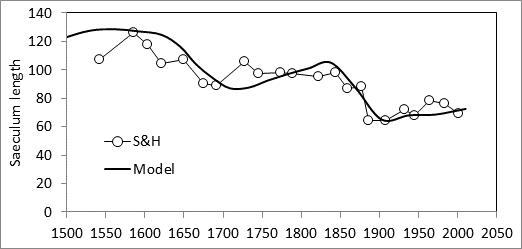The funny thing about writing about Generations who are dead (or mostly dead) it becomes rather easy to characterize them by specific members of their generations at specific times.
For instance if you read the biographies of all the Generations from the Silents and going back, most of their characterizations focus on the latter-end of the generation--not the forefront. In the Lost Generation, a whole love letter is given to WWI vets and those who drove ambulances through the trenches and then tried to forget about it all by drowning themselves in speakeasy liquor afterwards.
But what about those members of the Lost generation who started coming of age just before the Titanic sunk? Do you think if they had the opportunity to read that description on "their generation" that they would consider themselves a part of that culture? Or how about the Flapper of 1910--who was a completely different animal than the Flapper of 1920 as the term evolved. Early Losts often preferred Ragtime and its
animal dances to the Jazz of the late cohorts. Sure there were some things which held them together (like the Tango--the Tango was one thing which unified them in terms of dance and music--
1913, the year the world went Tango mad!), but just as much existed to differentiate them.
And yet what do we remember more, the early or the late? The late.
Similarly the Silents are described (especially in their teenage years) with language and vocabulary that more appropriately is applied to latter-end Silents such as "going steady", which is the one that has stayed with me since I read that section of the book.
Sure, they did try to create a unified identity with some generations across the 20 year span. I specifically recall the beginning of the GI chapter where S&H go out of their way to quote Hemingway and Fitzgerald about how their juniors were "different" to say the least and throw out the example of Coolidge sending a ship specially for Lindbergh to bring him home. But when it came time to talk about GI culture? Swing is what got brought out--something that would've been alien to Lindbergh's youth experience given that the dance and music form
The pattern is quite clear then, the latter end of a Generation is the one which gets remembered more as time passes (makes sense since the early members should theoretically die first and the latter ends live the longest).
It also explains why the term Millennial is so big now and why I go to work and hear a 1984 & 1985 cohort each talking about how to attract the attention of more Millennials and attend seminars with the focus of doing so--and look at me with confusion when I mention the fact that they themselves are Millennials--somehow the term as society is applying to it is becoming more focused around the latter end members who are "important" right now. Similarly, Generation X had been coming of age throughout the 1980s--but it wasn't until the early-to-mid 1990s that suddenly they appeared as a cultural icon or cemented themselves as such. And while I love early Xers (some of my favorite people on the planet were born in the cluster of years around the central year of 1967 for instance), I don't think society is going to think of them or their cultural identity when they think of the term "Xer".
The latter end of the Boomer Generation is a good example of a suppressed latter end (which can theoretically exist, I suppose)--so much so that they've declared cultural warfare on the early Aquarian Boomers by declaring themselves to be Jonesers.
And yet, despite all this focus on latter-end members of generations for past generations (and increasingly on current ones as the latter members are letting themselves be known), somehow in looking at Gen Xers, Millies, and Homies, S&H have become extra focused on looking at the earliest members of the generation--when it would seem, history favors the latter end cohorts in terms of preservation of identity.
So how did we become so obsessed with looking for new beginnings? Well, S&H put us on that path didn't they. Eager to predict when new kiddies would appear, they gave us that reassignment in that first place. That and Boomers I think assumed that just because they had a strong enough beginning to a generation that the rest after them would as well. That's at least my hypothesis for now.
~Chas'88






